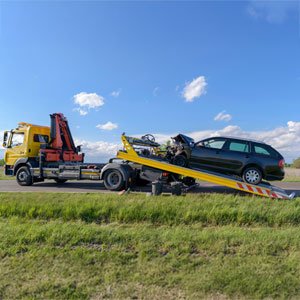Jury Should Hear Causation Issues In Neck Injury Case
Car AccidentsIn the case of State Farm Mutual Automobile Insurance Company v. Joseph V. Ferranti, Case Numbers 5D16-3980 and 5D17-756 (Fla. 5th DCA September 28, 2018), Florida’s Fifth DCA held that summary judgment for causation issues in a car accident case is not appropriate.
Facts Of The Case
Before trial, summary judgment was entered awarding damages for diagnostic testing which was reasonably necessary to determine whether the accident caused injury. After the plaintiff was awarded a verdict, State Farm appealed arguing that the issue of causation is a jury question and that the plaintiff’s motion regarding diagnostic treatment (pursuant to Pack v. GEICO General Insurance Co., 119 So. 3d 1284 (Fla. 4th DCA 2013) was premature.
Ferranti’s accident was much like many others. He was hit from behind and he made a claim with State Farm under his own automobile policy for uninsured motorist coverage (UM/UIM). Ferranti’s lawsuit claimed permanent injuries to his head, neck, body, limbs, and nervous system along with aggravation of pre-existing conditions. State Farm admitted that the other driver in the accident was negligent in causing the collision but disputed causation of injuries and the extent of damages suffered by the Plaintiff.
In addition, Ferranti had a previous claim for back pain which resulted in chronic spinal pain. State Farm’s radiologist (Michael Foley, who is frequently hired by State Farm and has testified in some of my own cases) testified that Ferranti’s current injuries were the result of pre-existing spinal degeneration and were a “typical appearance of a chronic disease.” State Farm was prevented from introducing evidence of the previous back injury claim event hough the injuries and complaints (according to the case opinion) were “virtually identical to those suffered and compensated in the prior accident.”
The Problem With Summary Judgment When Causation Is Disputed
Although State Farm admitted that the other driver was negligent and although Pack v. GEICO states that “[g]enerally, a plaintiff may recover the medical expenses for diagnostic testing which were reasonably necessary to determine whether the accident caused … injuries…[t]his is true whether or not the jury finds the accident to be the legal cause of the injury,” awarding damages by way of summary judgment (i.e. that there is no issue of material fact) was held to be improper.
Instead, the proper course of action in a car accident case with admitted liability is to go forward with the trial and then, if necessary, the judge can entertain whether an additur is necessary in the event that the jury awards no medical expenses. The idea behind this is that admitting liability in a car accident case should result in damages for any reasonable emergency diagnostic treatment shortly after the accident (on the other hand, admitting liability has nothing to do with whether a person needs long term care after an accident).
Doing this process after the verdict gives the judge the opportunity in an additur situation to determine whether the emergency treatment after the accident was reasonable (and necessary). I can see most judges agreeing that the ER bills in an admitted liability case are reasonable and necessary (but not necessarily all past medical treatment or expenses).
Dropping Claims May Not Be Enough To Stop Evidence From Coming In
The Fifth DCA also took the trouble to comment on the exclusion of Ferranti’s prior lower back injury from evidence. Prior to trial, it appears that Ferranti dropped claims of aggravation to his back injury to focus on his claims of neck pain. After dropping the low back claim, Ferranti convinced the trial judge to exclude evidence of his prior accident and his low back injury pursuant to Health First, Inc. v. Cataldo, 92 So. 3d 859 (Fla. 5th DCA 2012).
In the Cataldo case, evidence that the plaintiff “allegedly misrepresented” prior injuries is inadmissible as it constitutes “impeachment on a collateral issue.” Here, the Fifth DCA points out that State Farm was not seeking to introduce evidence of the prior low back injury for impeachment purposes but was instead seeking to establish that Ferranti’s injury claims were due to pre-existing degeneration as opposed to new trauma. The court felt that Ferranti’s injuries to his neck and back were “interconnected” and were, therefore admissible.
Words To The Wise
In light of the issues raised in this case, a plaintiff in an admitted liability car accident case should expect to go through a trial and see what the jury does with past medical expenses rather than seek summary judgment to award past medical expenses under Pack v. GEICO (which addressed post-trial issues and not summary judgment).
In addition, there are many cases that support the notion that a plaintiff’s entire health history is “at issue” in a personal injury case. Therefore, you can expect that everything in your medical history may be brought before a jury. Likewise, if the insurance company goes too far with this in an attempt to unreasonably embarrass you, then the tactic may backfire. It remains to be seen what will happen to this case on re-trial with State Farm.
Help For Your Florida Car Accident Lawsuit
Florida car accident lawsuits against insurance companies are serious business. In order to comply with the law and present your case appropriately, you should have the help of a Lakeland, Florida car accident attorney to guide you throughout your case. Call us today to schedule a free consultation with a car accident attorney regarding your case.


